Graham Reid | | 5 min read
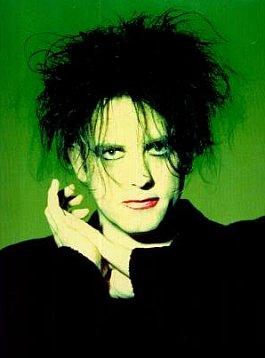
He's had a day of interviews yet few people have asked Robert Smith of the Cure the obvious. Something to do with the age of those asking the questions, he laughs. The question is simple: The Cure have a Greatest Hits album out - not their first such collection - but there's a notable omission.
So Robert, was it the political climate, pressure from the record company, or are you just so sick of the controversial albatross that you decided not to include the band's first single Killing An Arab?
"I honestly don't think it would have made any difference if we had included it actually because I've already gone through this during the Gulf War. It's on the first album [Three Imaginary Boys] and on Standing on the Beach: The Singles and I resisted a certain lobby that wanted it pulled from that album, and another which tried to force record shops not to stock it."
The seminal, cerebral '78 song with the much-misinterpreted title was their extraordinary distillation of a few pages of Albert Camus' existential novel l'Etranger (The Outsider). In a few words and even fewer instruments, Smith captured the ennui of the novel's central incident, and wrote himself into headlines. But the reason for its absence on this collection is that it didn't conform to his definition of a hit, which meant "songs which had to be commercially successful and mean something to the band in a wider context".
"So if a song wasn't a 'hit' it would still be considered because I didn't want to exclude some of the earlier ones which didn't sell much, or even some of the later ones which didn't sell as well either. But of the early singles, Boy's Don't Cry meant the most to the band and A Forest came next.
"I have to say though if we weren't in the current climate I don't think anyone would have noticed [the absence of Arab]. But if I had my time over I wouldn't not write the song - although I would change the title. If only that book had been set in Greenland."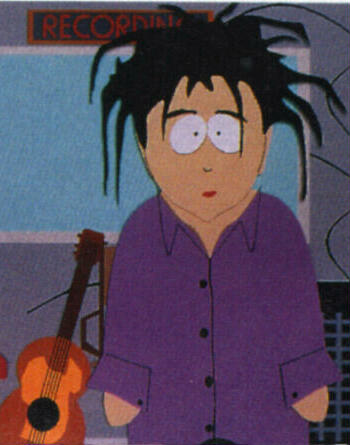
Smith is in a chatty mood and has a bit to get off his chest. The Cure are one of the longest-running bands of their era. With his distinctive smudged lipstick and fright of hair, Smith is such an identifiable character he's appeared on South Park: "The highlight of my career. I await the action figure with trepidation, the one where the arms and legs don't move."
Part Goth and part moody pop, the Cure released 20 albums, but after their last, Bloodflowers, were free of responsibilities to all their international labels. Smith has declined to re-sign either the band or as a solo artist. Their parting gesture is the greatest hits collection with a bonus disc of recently recorded acoustic versions of the 18 tracks which stretch from Boys Don't Cry to a couple of previously unreleased songs.
It's a value-added package in an industry which hasn't accorded this long-running British band a box set or even the digital remastering of their catalogue. He doesn't doubt they'll come, but only when the companies realise they no longer have the band and will try to rejuvenate the catalogue while they still own it.
"It'll be a commercial decision, and that's why I decided not to re-sign, because every decision over the past six or seven years has been purely commercial. There's no sense of loyalty because the band has stayed with the same label for 20 years, in fact we're treated pretty shabbily. "Bloodflowers was the last straw because it was hugely underpromoted. Despite that, we toured and played to half a million people and sold a million albums. And they sit back.
"This seems like a good time to try something new. We're free and the band name carries a certain cachet. It's a good brand in market-speak, and with the internet it's the perfect time for a band like us to discover new models of distribution. It's quite exciting, for the first time in my adult life I don't have to seek permission to do anything."
The first of the new projects will be the much-delayed solo album which will be completed in the new year. Smith says that four years ago he was disillusioned with the band and one of his frustrations was that his songs would never progress beyond the Cure's audience. .
"So it felt like a natural time for me to do something afresh. I didn't feel comfortable with the band and solo thing coexisting because then I would just be 'Robert Smith of the Cure' taking a holiday from the band.
"So I started recording stuff without the band in mind and it was liberating because I wasn't constrained by the traditional methodology I'd adopted over the years. I think the band works well within a particular idiom, whereas liberating myself from that was very satisfying. So I've continued that and feel no conflict now. I'll be 'Robert Smith of the Cure' no matter what I do."
The package offers some tantalising hints of what Smith -- a self-confessed lover of melody, chords and good tunes -- might explore. The acoustic disc was his idea, a bonus for Cure followers.
"Bloodflowers got us such goodwill and people were looking forward to something new, but a greatest hits isn't high on anyone's wish-list. So this album is aimed at an audience of lapsed Cure fans, the people who might only buy one album and that's a greatest hits because they're on safe ground." 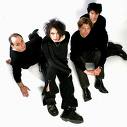
And so the Cure close off their career, at least temporarily, and Smith steps confidently into the great unknown. Distribution via the internet, some real world distribution by small companies? Sounds like he's back to the indie-land he started in.
"It does feel like we're closing the circle, and commercially we're about the same level we were in the mid-80s. We enjoy ourselves off in the shadows, and there's an audience for us."

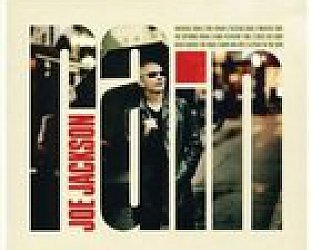

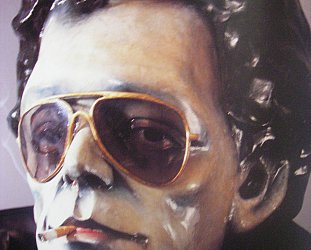
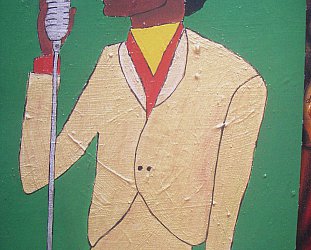
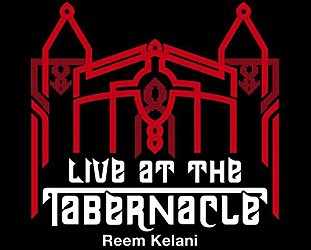
post a comment